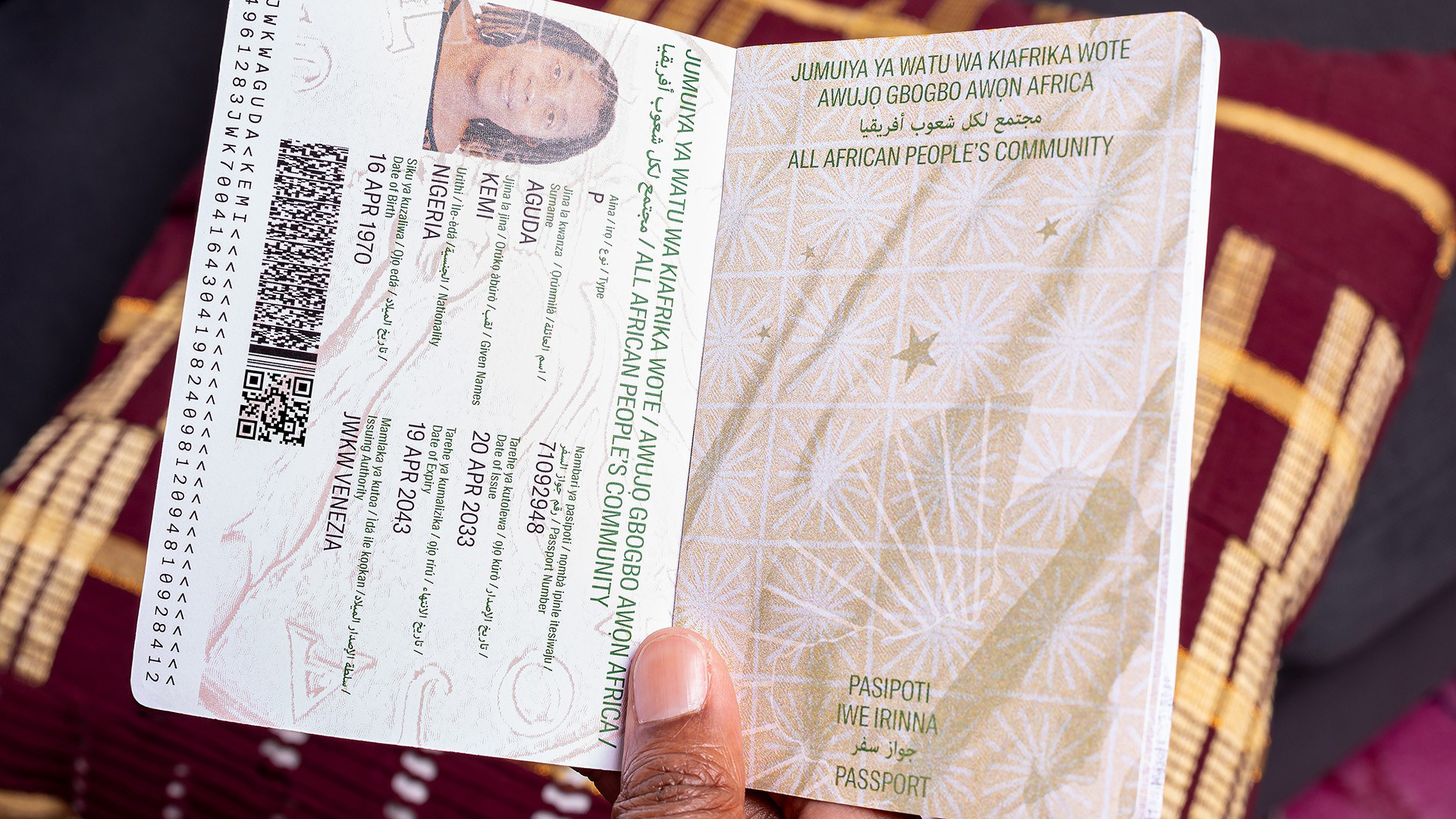Dread Scott – All African People’s Consulate

All African People’s Consulate is a Collateral Event of the 60th International Art Exhibition – La Biennale di Venezia. This special project is organized by Open Society Foundations and the Africa Center, with support from Cristin Tierney Gallery, Wake Forest University, and Art Events. It is curated by Paul Bright, director of Hanes Gallery at Wake Forest. The Consulate opens on the Grand Canal at Castello Gallery with previews on April 17, 18, and 19.
The All African People’s Consulate is a functioning consulate for an imaginary Pan-African, Afrofuturist union of countries, promoting cultural and diplomatic relations. The premise of the Consulate is the opposite of most existing immigration chokepoints; while those often function to constrain admittance and movement, this Consulate facilitates ways to let one in. In a convivial setting, one is invited to stay, converse, and interact in organic, spontaneous ways.
In the Consulate visitors can apply for an All African People’s Community passport or visa. They will interview with Consulate staff, where they will discuss their relationship to Africa, their family history of migration, and more. For those of African descent, the Consulate facilitates their citizenship in this futurist, globalist community, presenting them with a personalized passport. Others receive a visa allowing them to visit.
By creating the All African People’s Consulate, Dread Scott engages in an act of inversion. American and European media feeds are replete with images of Black people impacted by violence, in desperate migrations across hot, dry places, or in frequently disastrous situations aboard overcrowded, leaking rafts. But the Consulate offers a riposte to these views of the continent and its peoples. What if, instead of being seen as a place to escape from, there was an African community of nations which was a magnet, a refuge from colonialism and oppression, a destination for immigration and visitation?
The Consulate offers a different option, one long hoped for by freedom fighters and activists: a free state for “Africans,” truly independent and democratic. The visionary Afrofuturist and musician Sun Ra famously proposed that “space is the place”—the locus for free Black people of the diaspora to reconvene. But what if we didn’t have to go that far? What if Africa was that place? What if it always has been?
About the Artist
Dread Scott (b. 1965, Chicago) is an interdisciplinary artist who for three decades has made work that encourages viewers to reexamine the cohering ideals of American society. His art has been exhibited at MoMA PS1, Walker Art Center, Brooklyn Museum, CAM St. Louis, Whitney Museum of American Art, African American Museum, Bruce Museum, CAM Houston, Worcester Art Museum, Pratt Munson, Musée d’Art Moderne et Contemporain, Hamburger Kunsthalle, Copenhagen Contemporary, and Kunsthal KAdE, among others. It is included in the collections of the Metropolitan Museum of Art, National Gallery, New Museum, Whitney Museum of American Art, Brooklyn Museum, Ackland Art Museum, Pratt Munson, Memphis Brooks Museum of Art, Weatherspoon Art Museum, Akron Art Museum, Museum of Contemporary Art San Diego, and Worcester Art Museum.
Scott was recently awarded the prestigious Abigail Cohen Rome Prize at the American Academy in Rome, and previously received the John Simon Guggenheim Memorial Foundation Fellowship, Frieze Impact Prize, Purchase Prize from the American Academy of Arts and Letters, Open Society Foundations Soros Equality Fellowship, United States Artists Fellowship, and Creative Capital Foundation Grant. His studio is in Brooklyn, New York, and he is represented by Cristin Tierney Gallery.
April 17–19, 2024
All African People’s Consulate is supported by Wake Forest University, Cristin Tierney Gallery, and Art Events and presented by the Africa Center and Open Society Foundations.
The project is supported in part by the Fellows’ Project Fund of the American Academy in Rome.